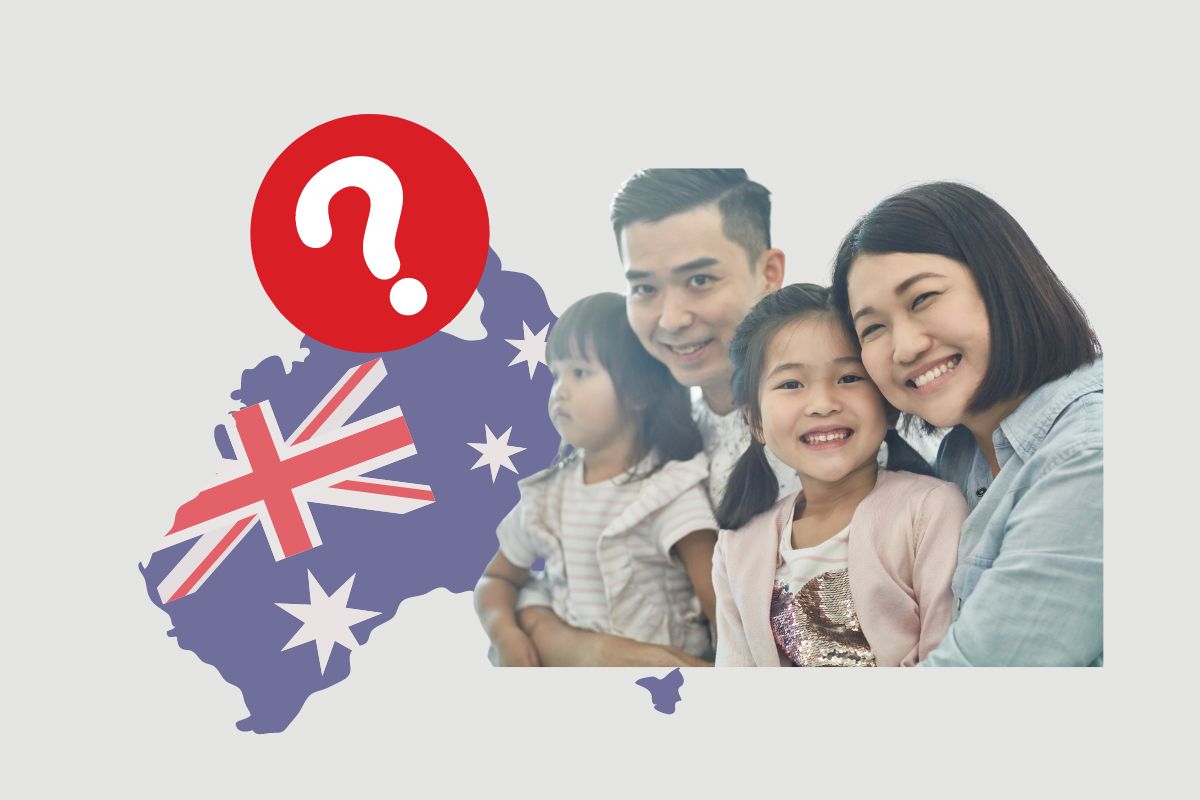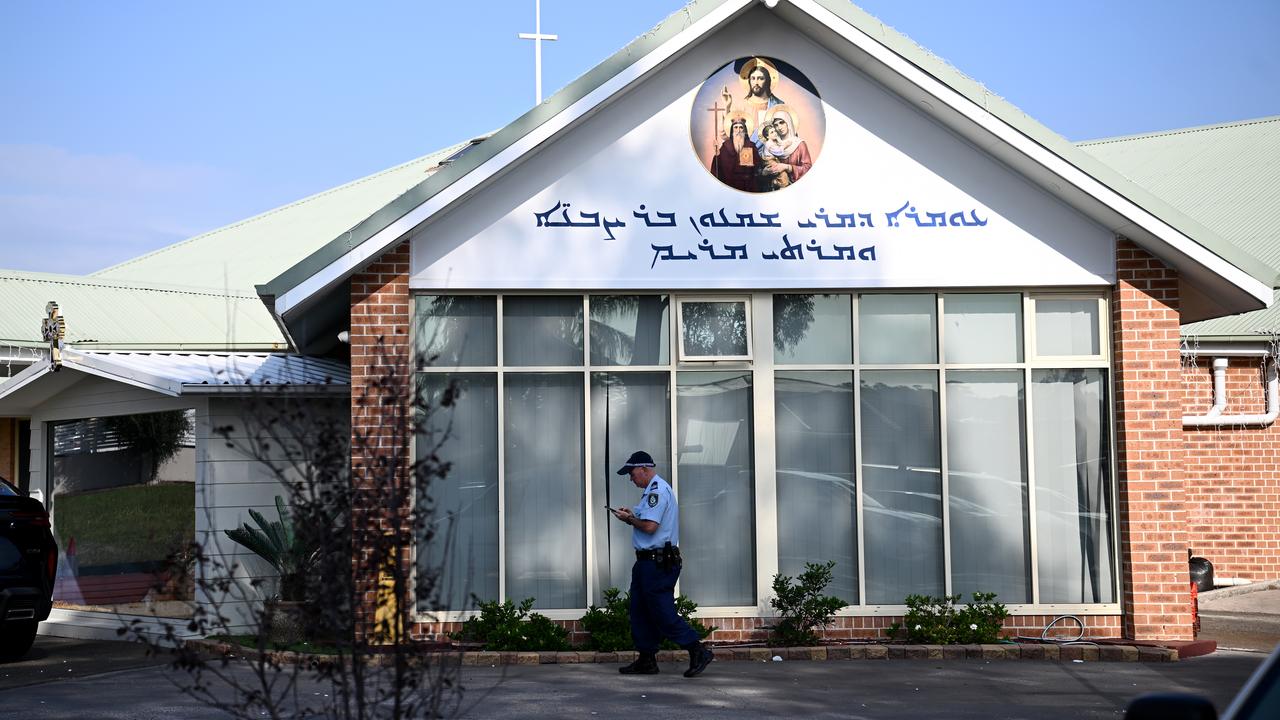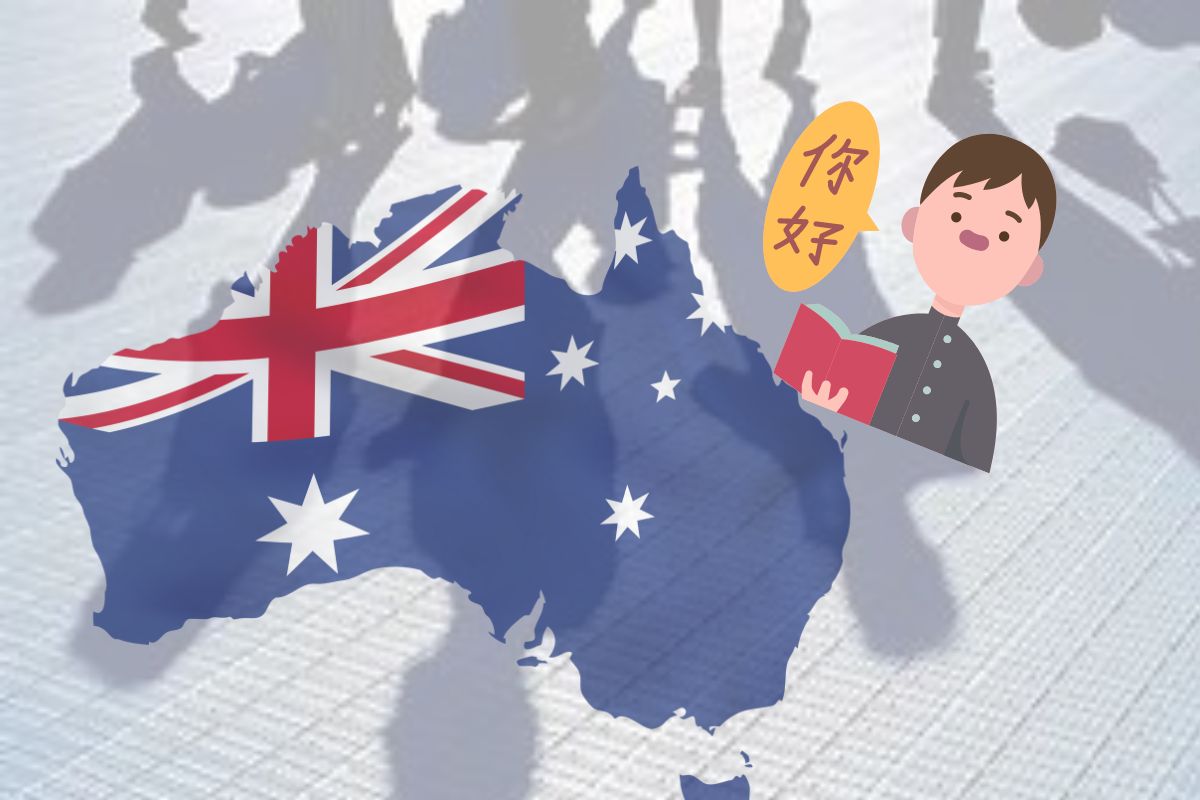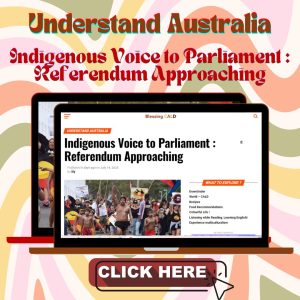Understand Australia
Bless Australians around you
Published
4 months agoon
By
lily
This is the Year of the Dragon, being a sign of majesty and power, dragon was used to represent emperors throughout Chinese culture and history. Composer Hou Dejian’s ‘Descendants of the Dragon’ in 1978 represented the desire and aspiration of those Kuomintang soldiers and their next generations who had left China to settle in Taiwan on their mother country. Only since that time, Chinese called themselves as “descendants of the dragon”. Recently a Malaysian singer Wee Meng Chee aired a new version of the song and MV to tease Communist party and the Chinese government who do not align with the world values as they are selfish, ego, ignorant, mean amid their economic uprise. The MV became viral in in two weeks with over 8 million hits and a lot of responses.
I have been asking myself should I be proud of being Chinese? Are we really superior to others? We have supreme culture? We have not been respecting people of this land? Are we honouring Australian system, culture and values… the western people who came to here for long and those different ethnic communities who migrated to here over the past few decades?
I have been saying grace for becoming an Australian here. This young nation respects humanity, freedom, justice and democracy whereby attracted a lot of immigrants in fulfilling their dreams here. The earlier settlers have been accommodating, and with many of them were originally from the lower sectors of the society, Australia was built upon a generous and caring social system. With a low population on a vastly resourced territory, the society is willing and capable of offering help to people in needs. We see a future of Australia in such a circumstance.
My next generations to come will be Australians who know Chinese and retain their Chinese lifestyle and values, but at the same time they respect, freedom, justice, law, democracy and human right. This will be what most Chinese Australians want – owning the best of both worlds, then extending this to the Australians around, giving their best to contribute in this multicultural nation.
Lunar New Year tells the importance of building human relationship as we celebrate with and bless our friends and relatives around, akin to the blessing of Christianity. This year while we celebrate Lunar New Year I hope this blessing would not just happen within the Chinese community but goes beyond to embrace and enrich all Australians with a different cultural background.
Mr. Raymond Chow
The Publisher of Sameway Magazine
You may like
Understand Australia
Where do Chinese Australians go from here?
Published
3 months agoon
May 6, 2024By
lily
Is Chinese culture a form of social control and brainwashing?
Chinese people have been coming to Australia since the Gold Rush era. However, in the last 30-40 years, very few Chinese people have planted their roots in Australia. Many Chinese people believe that this is the result of the White Australia Policy implemented in Australia since 1901, but I think this is a shallow and misleading view. Most of the commentators do not have an in-depth understanding of Chinese culture and Australian history, and they do not understand that since the Gold Rush Era, there has been a cultural gap between the Chinese miners and the Australian society, and that they could not integrate with each other, which led to the formation of the White Australia Policy.
In order to understand Chinese culture, we have to start from the history of Chinese people. Chinese history has been written since the Shang Dynasty. When I was in secondary school in Hong Kong, Chinese history was a compulsory subject in junior high school, and Chinese literature was included in senior high school, although I took up a subject later on, my interest in this history and literature has not waned. The interesting thing is that I never thought about why students have to study these subjects. Later, I realized that in Hong Kong, which was a British colony, the teaching of Chinese History and Literature in schools was in fact meant to pass on the Chinese culture in the community.
At that time, the subject of Chinese History was only taught up to the founding of the Republic of China (ROC) by Dr. Sun Yat-sen, the father of the nation, because after the founding of the ROC, the two regimes, the ROC and the People’s Republic of China (PRC), had very different interpretations of history. The British chose to seek common ground and put aside their differences, so schools chose not to teach it. What puzzles me most about studying Chinese history is that in the Spring and Autumn period, 2800 years ago, when China was still a feudal society with no centralized authority, there was a market for different theories on how to govern the country, and this was the golden age of Chinese philosophical thought and the freest society. The hundred schools of thought were able to put forward their views on things and learn from and compare each other.
However, Emperor Qin Shihuang used the Legalists to unify and establish the first Chinese empire with a strong army, and by burning books and burying scholars, all books were burned and scholars who had transmitted different ideas were eliminated. With the unification of the written language, the state was governed by harsh laws and controlled the thoughts, words and deeds of the people. In less than 13 years, the Qin Dynasty fell and the Han Dynasty was gradually established. In this short period of time, different ideas had re-emerged in the society. However, within a few decades, Emperor Wu of Han Dynasty abolished the Hundred Schools of Thought, adopted the advice of Dong Zhongshu, and honored Confucianism, establishing through education and authoritarian rule the only patriarchal system of governance accepted by the society for nearly 2,200 years. Until the Republic of China, every opposing thought of the Chinese people in this part of the country was destroyed under totalitarianism. It can be said that both the Chinese who came to Australia during the Gold Rush era and those who immigrated from China to Australia today are accustomed to being the ideological slaves of the rulers, and all they can beg for is a chance to live as the rulers allow them to live.
Western culture is human-centered
Comparing to the history of the West, since the Greek city-states put forward the ideas of democracy, rule of law and freedom 2500 years ago, even if the Christian Church combined with the kingship in the Middle Ages, the totalitarian rule could not take root in Europe. Since the establishment of the Magna Carta in 1215, the British kingship was restricted by the aristocracy. Afterwards, the Enlightenment and knowledge became an important force for social development, and democracy became an alternative to totalitarian rule, with the constitutional monarchy in Britain or the republican system in France as the two major developments. No matter which system is adopted, it is essentially a system in which power is granted by the people to the rulers, and the rulers have to gain the recognition and support of the people in order to maintain legitimate governance, which has gradually become the basis of governance in the western democracies today.
In contrast, most of us Chinese from different parts of the world have seldom experienced the baptism of democracy. When we come to Australia, it is difficult for us to understand and recognize the concepts of democracy, human rights, rule of law and freedom.
Worse still, we have little regard for the social patterns of life that Western societies regard as universal values, and this impacts on our commitment to the society in which we are rooted.
Hong Kong’s 23 pieces of legislation reflect a totalitarian culture
In the last issue of this magazine, we suggested that Hong Kong should pass the National Security Ordinance quickly, but in less than a week, the Ordinance has already passed the third reading in the Legislative Council, fully reflecting the fact that the totalitarian regime that has used harsh laws to govern and control people’s thoughts, words and deeds for more than 2,000 years, as mentioned in the previous section, is still the case today. This contrasts sharply with the Australian Senate’s decision today to suspend and study the government’s interim bill against illegal immigrants on the grounds that it may conflict with the Bill of Rights. What appears to be a draft legislation scrutinized by the Legislative Council is in fact no different from the emperor making it a law once he has given his royal seal of approval. What is even more interesting is that such a bill enacted in Hong Kong claims to have extraterritorial jurisdiction over any country in the world, binding Hong Kong people born in Hong Kong, regardless of the fact that they have become citizens of other countries today.
Why? Because if you are a Hong Kong-born person of Chinese descent, if you do not have a passport from another country, you are defined as a permanent resident of Hong Kong, and Hong Kong residents are regarded as Chinese citizens, and the National Security Ordinance states that it has extraterritorial jurisdiction over them. Only those who have emigrated and applied to the Hong Kong government to give up their permanent right of abode in Hong Kong lose their Chinese citizenship and are no longer subject to this Ordinance. Examining this Ordinance has also made me rethink the question of the status of Hong Kong immigrants who have taken root in Australia.
Immigrants who take root in Australia should not necessarily be cut off from their place of origin. On the contrary, Chinese immigrants can become the middleman between Australia and their place of origin in establishing closer academic and cultural exchanges, business and trade cooperation, or in establishing cooperation between the two places in terms of human resources and resources. In order to play this role well, Chinese immigrants need to integrate into Australia, build up various relationship networks here, and become part of the mainstream society, as well as spreading Chinese culture to them. The Chinese immigrants who are able to do so, I believe, are the ones who will receive the greatest blessings in the process of immigration. This is because they have combined the strengths of two different regions and played their unique roles. Their second generation, who grew up in Australia but in Chinese families, have an advantage over those born in mainstream Australian families, and are more likely to benefit from this special status.
Hong Kong immigrants with this status also play an important role in promoting China’s internationalization and maintaining Hong Kong as a cosmopolitan city. Because of their familiarity with Hong Kong society, and the fact that many of them are still connected to the elite of Hong Kong society, they are vital in promoting cooperation between the two places.
However, the legislation just passed in Hong Kong has made these Hong Kong-Australians wary. For one thing, they can only support but not criticize Hong Kong, or else they will have to run the risk of violating the Ordinance one day when they return to Hong Kong because of what they have said or done in Australia, and the consequences will be unimaginable. Under these risks, these Hong Kong people will either have to give up their permanent resident status in Hong Kong, or they will have to refrain from contacting their friends in Hong Kong and returning to Hong Kong. Either way, it is not a good thing for Hong Kong or China.
Chinese will only recognize Australian values more
Over the past two decades, the Chinese government has emphasized its united front with overseas Chinese, seeking their recognition and support for China, which has led to the creation of many overseas Chinese communities, as well as fostering exchanges and co-operation with China in different parts of the world. Since 2017, China has changed its united front policy to require Chinese people around the world to fight for China’s rights in the countries they live in, which has led to the enactment of the Anti-Foreign Intervention Act (AFIA) in Australia, which protects nationals from being infiltrated. Mr. Sunny Duong, a Vietnamese Chinese leader who has just been charged with violating the Anti-Foreign Intervention Law in Australia and convicted and sentenced to two years and nine months in prison, has become a victim of the tense relationship between China and Australia.
As a matter of fact, few Chinese people living in Australia initially thought about the advantages and disadvantages of the systems and cultures of China and Australia. Most of them only look at which place offers them the greatest monetary return, such as where the best investments are made, or where the most money is made in trade and business. That’s why when China’s economy grew at a phenomenal rate after its accession to the World Trade Organization (WTO) over the past 20 years, most Chinese immigrants to Australia were engaged in Sino-Australian trade or went back to China to develop their businesses, and were less inclined to devote themselves to life in Australia. Hong Kong people, who are more engaged in professional work in Australia, chose to integrate into the Australian mainstream, only to realize that they are a tiny minority.
However, with China’s economy under pressure and Hong Kong no longer having much room for development, it is believed that those Chinese who remain in Australia will be more proactive in seeking room for development, and as a result, they will be more proactive in integrating into the Australian mainstream society. As a result, the Australian society and culture will be more attractive to them.
Mr. Raymond Chow

Following a terrified knife attack at a shopping center in Bondi Junction, Sydney, another knife attack at a church in West Sydney has shaken Australia. The incident has been characterized as a “terrorist act” and NSW Police Commissioner Karen Webb has confirmed that the teenager who was arrested after the knife attack at the church made comments during the incident suggesting that the attack was religiously motivated. This incident makes us reflect on how the government can better advocate for a more diverse, inclusive and safe society in the aftermath of this religious conflict. This is a difficult issue that Australia, as an immigrant society, will never be able to get around.
What made a teenager wield a knife?
On the evening of April 15, Bishop Mar Mari Emmanuel was leading a service at Christ The Good Shepherd Church in Wakeley, west of Sydney, and streaming the service live online. Suddenly, a 16-year-old boy lunged at him with a knife, stabbing the bishop and injuring three other men. The four injured, aged between 20 and 60, are all in no danger of dying and are receiving medical treatment. Local police arrived quickly after the incident and arrested the teenager.
Bishop Mar Mari Emanuel is a prominent religious leader in the area. The conservative Assyrian leader is known for his outspoken views against the Covid pandemic , homosexuality, and non-Christian religions, including Judaism and Islam. And this is considered by many to be the main reason why he was targeted – because of his critical and outspoken views on Islam. Many of his sermons criticized the Quran and the teachings of the Prophet Muhammad and attracted as many as 240,000 fans. The boy in question is said to have made comments in Arabic referring to insults against ‘my prophet’ before stabbing the bishop.
Investigators from the Sydney Joint Terrorism Unit (JTU) began questioning the teenager at the hospital last week and accused him of committing an act of terrorism. Terrorism is defined in federal law as an act or threat intended to “advance political, ideological or religious causes” and to “coerce or intimidate the government or public of Australia or a foreign country”. Terrorism is a generic term referring to allegations of terrorism, while a ‘terrorist act’ is a specific unlawful act that ’causes serious bodily harm to an individual or serious damage to property, causes death or endangers the life of an individual, poses a serious threat to public health and safety, or seriously interferes with, disrupts or disrupts an electronic information, telecommunications or financial system’, an offense punishable by up to life imprisonment. The teenager was refused bail and traveled to court from his hospital bed. The teenager, who allegedly used a knife that cut off one of his fingers, also underwent surgery. The Joint Terrorism Unit (JTU) is made up of members of NSW Police, the Australian Federal Police, the Australian Security Intelligence Organization (ASIO) and the NSW Criminal Investigation Commission (CIC).
The 16-year-old was expelled from a school in West Sydney six months ago after being diagnosed with anger management issues, being very withdrawn and spending long periods of time in his bedroom playing on his computer. His parents were appalled by his behavior and have not returned to their West Sydney home since the attack because they fear for their safety. Based on known information, it appears the teenager was acting alone at the time of the attack. Meanwhile, the head of the Australian Security Intelligence Organization (ASIO), Mike Burgess, added that Australia’s national terrorism threat level would remain at “likely”.

Crowds gather to cause riots
As the incident was being broadcast live on the internet, a demonstration broke out outside the church immediately after the incident, with people gathering to denounce the suspect. Some people shouted “bring him out” and “eye for an eye”, and police were forced to stay in the church with the suspect and at one point tear gas was used to disperse the crowd. More than 100 police officers were mobilized to deal with the riot that night. Many officers were injured, police cars were vandalized, and a large number of police officers and medical staff were forced to take refuge inside the church. Investigators are looking for up to 50 people who took part in the violence; three people have already appeared in court on charges of participating in the riot. Many of those involved in the riots were not members of the church community, and some simply came to participate in the riots, “which is shameful and disgusting. Prime Minister Albanese also issued a statement condemning the mass disorder, saying “it is unacceptable to obstruct and harm police officers in the performance of their duties.
The current online environment, particularly in the context of the Israeli-Palestinian conflict, has exacerbated tensions between the groups. West Sydney is a melting pot of different cultures from the Middle East, and the often complex relationships between groups can easily create a fertile environment for angry individuals who want to take action, target, or even be motivated to attack someone. After the attack, religious groups condemned the attack and called for calm.
Assyrian History
The incident took place in the Assyrian community. The Assyrians are a people of Near Eastern Mesopotamia, said to have originated from the city of Ashur, who took control of the Middle East in 824 BC, and in 671 BC, the Assyrian armies conquered Egypt and became the hegemonic powers of the world at that time, succeeding the Babylonian Empire. However, after the Persian, Greek and Roman empires had fallen into disrepute, the Assyrians lived only in the present-day regions of Syria and Iraq. However, started in 100 AD, the Assyrians converted to Christianity, so that Syria was a predominantly Christian country, while the Assyrian Christians lived in a country surrounded by Muslims for a long time. For more than 1,000 years, the Christians in Syria have lived under long term oppression, and many of them have migrated to different countries around the world. There are now 700,000 Assyrians in Syria and close to 600,000 Assyrians living in the United States. Stockholm, Sweden, and Fairfield, Sydney, have the largest Assyrian diaspora in terms of urban population.
The Assyrians were a dispossessed people for over a thousand years, and were subjected to various forms of oppression under various rulers, including the Western Christianity in Europe, which rejected them, and did not recognize them in the Reformed or Eastern Orthodox Churches, which were considered to be biased in their beliefs. However, they can be said to have preserved the original Christian culture of the Middle East.
Thus the Assyrians are in fact an almost exclusively Christian minority group, originally from parts of modern-day Iraq, Syria, Iran and Turkey, and as a religious and ethnic minority group distinct from the Arab and Muslim majorities in the region, they face brutal persecution to this day. This incident adds a new dimension to the trauma of their long years of oppression, and this collective memory of trauma reinforces the close-knit identity of the community’s residents.
Bishop Mar Mari Emanuel, who was stabbed, also recently posted an audio message on social media saying that he is recovering quickly and has forgiven his attackers, and urging the congregation to remain calm and respect the law. In a recent meeting with religious leaders, NSW Governor Michael Cummins also called for calm and solidarity – compassion, understanding, cohesion, unity, and most importantly, peace, whether attending local churches and mosques, these people are there to be part of their communities, to find comfort and strength there. This is no place for violence.
It’s the cracks that allow the light to shine through
Unlike the belief held by many Australians that Australia is a Christian nation, this is not true.
Australia has been a secular state since the founding of the Commonwealth, and the 1901 Constitution prohibits the federal government from interfering with any freedom of religion. However, Christians have been the majority in the country since European immigrants settled here, with more than 90% of the population professing Christianity at the time, and only a small minority having no religious affiliation. While the number of non-religious Australians has increased over the past three decades, communities outside of the Christian religion have flourished in Australia, with Sikhism, Hinduism and Buddhism among the fastest-growing religions in the country, and these religions have flourished for their ability to provide connection, community and a sense of spirituality, particularly in serving new immigrant communities.
The 2021 Australian Population Survey showed that less than 50% of the population declared themselves to be Christians, and less than 20% of new immigrants are Christians. It can be said that newcomers do not have the same cultural identity as the original Australians as did immigrants during the Second World War. Therefore, it is a challenge for Australia to build a stronger sense of identity between new immigrants and the Australian nation.
Australia has always been committed to religious freedom, and extremism has no place. The Sydney church attack was an extremely disturbing incident, and for Australia to be a peace-loving nation, the community should be united, not divided. But is it really so easy to heal the rift between communities caused by the attack itself and the subsequent festering mass unrest?
In response to the growing threat of right-wing extremism in Australia, the Australian Security Intelligence Organization (ASIO) updated its definition of extremist groups in early 2021 – categorizing them as being driven by “ideology” or “religious belief”. The Sydney church attack was also categorized as a terrorist act because of its religious motivation. A new version of the Defense Strategic Review, launched last year, emphasized the need for Australia to move away from the old model of defense to a new approach of National Defence – a Whole-of-Government Approach or a Whole-of-Nation Approach. A Whole-of-Government Approach or a Whole-of-Nation Approach was adopted to cope with the competition of the big powers. In Australia, a secular and pluralistic country, a Whole-of-Nation Approach involves the unity of religious communities.
Australia is a multiracial country practicing multiculturalism, but recent international events and various localized wars have made people in Australia’s Middle Eastern communities particularly sensitive. In this climate, is Australia safer or more torn apart? How far can religious freedom go in this country? Perhaps continued secularization is the most viable path, freeing people from the establishment to truly see the individual, whether Christian, Islamic, Buddhist, etc., as a person who comes together in Australia with a shared vision of a happy life where there is no place for violence.
Reflections for the Chinese
The Chinese are often seen as irreligious, so many people think that the events in Sydney had little to do with them. However, ideologically speaking, the Chinese consider themselves to be “Chinese”, and today China (the People’s Republic of China) considers all Chinese in the world to be Chinese, a belief that dominates many Chinese.
Few Chinese from Southeast Asia identify themselves with their country of origin, and therefore most of them define their cultural roots as Chinese culture, and do not actively identify themselves with the Australian mainstream culture. Nowadays, the Chinese government is actively building up the relationship with the Chinese community in Australia, and more Chinese from China still consider themselves as Chinese, so it is easy to build up the idea that Chinese-Australians are also Chinese in each Chinese community. During the period of friendly relations between Australia and China, this idea was promoted and developed as a positive factor in promoting economic and cultural cooperation between the two countries.
However, in the past decade, China has become increasingly powerful and has challenged the legitimacy of the Western powers in dominating world politics. As a result, there has been a growing mistrust of and opposition to China in Australian society, and the community’s recognition of and trust in the Chinese has come under pressure. In recent years, Hong Kong people who came to Australia due to political pressure or persecution are even more dissatisfied with being regarded as “Chinese”, and some Hong Kong immigrants refuse to recognize themselves as Chinese. This has led to differences and divisions in the Chinese community, and I believe this is something that the Australian government needs to address.
The majority of Chinese Australians today are not refugees, but free immigrants who came to Australia by their own choice. They should be a group of people who recognize the values and culture of Australia, but it will take some time before they can fully integrate into the Australian society. As they come from societies with different governing cultures, they also show different responses to the values held by the Australian society. There are Hong Kong immigrants who embrace democracy and the rule of law as their core values, Taiwanese immigrants who do not consider themselves to be Chinese at all, and those who grew up with Chinese patriotic education (brainwashing?) and enjoy democratic rights and freedoms, but have not yet fully integrated into Australian society. There are also new immigrants from China who grew up (brainwashed?) with Chinese patriotic education and enjoy the rights of democracy and freedom while embracing the totalitarian rule of China. In fact, if these situations are not handled properly, the community conflicts caused by different religions and cultures in Sydney may also occur among the Chinese. I believe that this is something that the Australian government cannot afford to ignore.
Article/Editorial Department (Sameway Magazine)
Photo/Internet

Chinese people seldom think about activities in their community that may affect their identity as Australians.
Building a Successful Shed
The feature in Issue 703 of Sameway Magazine talks about the Sheikh of Dubai incident in Hong Kong. Today, all information about the Sheikh has disappeared from the websites of various organizations in Hong Kong, and almost no one is talking about him, as if he has never existed. I believe that the chances of the Sheikh coming to Hong Kong before the end of May to continue with his investment promises are already very slim. In the feature, I have also mentioned that His Holiness Pema Osei (Dato’ Ng Tat Yung, now renamed as Prof. Ng Kong Ho) has become a world leader in 2013 by building a stage for him with the Melbourne expatriates. His Holiness is described on the official website of his foundation as “an internationally recognized philanthropist, public diplomat, inventor and spiritual teacher”. His role as a “public diplomat” is one that I have wondered about over the years, what exactly does he do? Recently, I have been looking up some websites related to His Holiness, and I found some clues that Chinese Australians should pay attention to.
Since 2013, His Holiness has gained the support and recognition of various major Chinese community associations in Melbourne. His World Trade United Foundation has organized ten “Global Forums on Water Sustainability”, of which the sixth (2014) and the tenth (2018) were both held in Melbourne. The Foundation’s website still maintains a record of the events since 2013, and many Melbourne leaders have been recognized as executives of the organization over the years, so you only need to spend a little time to see how Melbourne leaders have stood up for him over the years.
I attended one of these forums and recognized that it was not an academic conference, just a dinner. With only invited guests delivering speeches and awards being presented to the various delegates in attendance, it could be described as a showcase for the collaborative relationships that members of His Holiness’s team have forged. At the 2018 Forum, I was surprised to learn that, in addition to Melbourne’s Chinese Consul, Victoria’s MP, and the second generation of China’s military, there were at least 15 dignitaries, such as ambassadors and ministers, from other countries, who were honored with awards. What on earth were these delegates doing in Melbourne, traveling all the way from overseas to participate in the Forum, just for this one dinner? The guests of honor at that time included the head of the Ministry of United Front Work of the Chinese government, and as shown in the photos on the event website, there were H.E. Tapusalaia Toomata, the then Ambassador Extraordinary and Plenipotentiary of the Samoan Independent State in China, H.E. Tau’aika ‘Uta’atu, the Ambassador Extraordinary and Plenipotentiary of the Kingdom of Tonga in China, and H.E. Carlson D. Apis, Ambassador Extraordinary and Plenipotentiary of the Federated States of Micronesia to China.
These ambassadors were all high ranking officials of the Pacific Islands at the time, and they came to Melbourne to discuss diplomatic matters, and His Holiness really deserved the title of “public diplomat”. I do not know how the Australian government, which has been ridiculed by the Chinese Foreign Minister Wang Yi for treating the Pacific Islands as its backyard, can understand how these diplomatic activities of gathering dignitaries in Melbourne through the activities of the Chinese community and making contacts with world leaders could have developed into the present-day situation that affects and threatens Australia’s security, and which has caused the Foreign Minister, Penny Wong, to be tired of running for her life, so much so that she has to make repeated visits to Pacific Islands to prevent the entry of Chinese forces into Australia’s backyard. I do not know even more. I wonder if the local Chinese leaders who supported, planned, organized and promoted these activities at that time feel that they have done something that threatens Australia’s security today.
The fact that many of the Pacific Island countries are now working closely with China and distancing themselves from Australia shows that His Holiness’s activities in Australia over the past decade or so have clearly paid off, and it is no wonder that His Holiness is still active around the world today, continuing his career as a “public diplomat”.
The Role of Chinese Leaders
Judging from today’s results, what the Chinese community leaders were promoting at that time could not be simply described as community activities. If the Australian Security and Intelligence Office (ASIO) had looked into these activities and investigated the Chinese leaders who promoted them, it is not sure whether the actions of some of them might have been considered as “endangering Australia’s national security”. What is certain, however, is that if the same events were to be held in Melbourne today, the enthusiasm of the Chinese leaders for the events might not be the same as before. At least some Australian politicians have disavowed their involvement with similar organizations following the enactment of Australia’s Anti-Foreign Intervention Act in 2018. However, on His Holiness’s website, today I still find the names and photos of Melbourne Chinese leaders listed as leaders of the Foundation in the 2021 records.
I once found the name of a Chinese leader whom I respect listed there, and when I asked him about it, he told me he had no idea about it. It turns out that the names listed may not necessarily be agreed and recognized by the person concerned, and anyway, if the person concerned does not know about it and there is no way to pursue the matter, then the person who has done this will have passed the test. But today, the problem may become serious. I believe that Chinese leaders should be more vigilant and should not be exploited.
Recently, His Holiness has been active as Prof. Wu Ganghao in the promotion of meta-universe, which is a hot topic in the science and technology sector. He has become the executive chairman of the “Global Meta-Universe Conference”, and he continues to promote his “diplomacy” activities around the world. If His Holiness comes back to Australia one day, will the Chinese leaders continue to carry his sedan chair for him?
The Myth of Chinese Identity
It is rare for Chinese people to think of their activities in the community as having an impact on their identity as Australians. Chinese people in their 70s and 80s came to Australia around the end of the Second World War. Many of them came from Guangdong because their fathers and grandfathers had already settled in Australia. When they came to Australia, China and Australia had not yet established diplomatic relations, and they were not yet sure whether they were nationals of the Republic of China (ROC) or the People’s Republic of China (PRC). They only saw that their own culture was different from that of the Australian society, and they had a strong feeling that they were expatriates without a country. They may think that one day they will return to their homeland, but politically they only hope for peace and unification of China. Therefore, unifying the Chinese to protect themselves from bullying in Australia became the goal and main function of the society. These Chinese leaders hoped to see the unification and China being strong, and seldom thought about what kind of Australians they should be.
However, most of the Chinese who came to settle in Australia after the 1970s are no longer related to the Chinese of the Gold Rush era. They are more likely to be Chinese from the Commonwealth countries who have left to study and become professionals in Australia. They have a certain status and professional identity in the society, and they recognize themselves as Australians, and do not necessarily participate in the activities of Chinese societies. However, most of them still have contact and relationship with the Chinese community, but they do not have much influence in the Chinese community.
In the 80’s and 90’s, some Chinese from Hong Kong set up a number of social or service organizations, which provided a lot of services to the Chinese community. They seldom talked about their home country and their identity, but only wanted to serve the Chinese in the community, and they did not take the initiative to establish a close relationship with the Chinese government. However, the Chinese who came from China in the early 1990s, although they stayed behind because of the June 4 incident, worked hard to establish cooperation with China, and took advantage of China’s economic development to build their own businesses in Australia. Many of today’s Chinese business and community leaders are successful expatriates who have capitalized on their relationship with China and combined it with business in Australia. However, these people have stayed in Australia for more than 30 years and are no longer able to connect with China today in terms of life and thinking, forming the backbone of today’s Chinese community.
Many of the immigrants who came after 2000 were middle-aged people who uprooted themselves to rebuild their lives in China, either by becoming students or by having established careers in China. They grew up in China and were influenced by their patriotic education, but did not analyze in depth the phenomena caused by the rise of China in the global West. They are enjoying the opportunities given to them by China, and they like the life and freedom in Australia, but they do not want to integrate into this society. For them, they like being Australian and enjoy being Chinese.
When the relationship between Australia and China is harmonious, they feel that they have a lot of opportunities and that the Australian society gives them a lot of possibilities. However, when the relationship between Australia and China is tense, they feel that they don’t know whether to go back to China or to Australia, and some of them are caught in a dilemma. Some of them are caught in the dilemma of whether to stay in Australia or go back to China. As they are financially and educationally well-off, they are also easily caught in the dilemma of choosing between the two.
Due to China’s one-child policy, there is a group of retired migrants in Australia who migrate to Australia because of their children. There are quite a number of them, they are financially well off and have a successful career, but they don’t know English and don’t know much about the western social system. However, they have a lot of experience and connections in China, so as long as their age and health are still good, they can have a period of time to create their own new life in Australia. For these people, the ability to identify and decide their future identity and role earlier will open up new horizons for their future.
Mr. Raymond Chow
What to explore ?

Where do Chinese Australians go from here?

Sydney Church Attacks: A Warning

The Internet Micro-Short Drama is Hard to Say

Identity of Chinese Australians

From the Mystery of “Sheikh of Dubai

Fraudulent ivermectin studies open up new battleground

Cantonese Mango Sago

NEMBC Arabic COVID 19 News – 14 June 2022

保护您自己和家人 – 咳嗽和打喷嚏时请捂住

FILIPINO: Kung nakakaranas ka ng mga sumusunod na sintomas, mangyaring subukan.
Trending
-

 COVID-19 Around the World3 years ago
COVID-19 Around the World3 years agoFraudulent ivermectin studies open up new battleground
-

 Cuisine Explorer4 years ago
Cuisine Explorer4 years agoCantonese Mango Sago
-

 Arabic2 years ago
Arabic2 years agoNEMBC Arabic COVID 19 News – 14 June 2022
-

 Cantonese - Traditional Chinese4 years ago
Cantonese - Traditional Chinese4 years ago保护您自己和家人 – 咳嗽和打喷嚏时请捂住
-

 Tagalog4 years ago
Tagalog4 years agoFILIPINO: Kung nakakaranas ka ng mga sumusunod na sintomas, mangyaring subukan.
-

 Uncategorized4 years ago
Uncategorized4 years ago如果您出現以下症狀,請接受檢測。
-
Uncategorized4 years ago
在最近的 COVID-19 應對行動中, 維多利亞州並非孤單
-

 Uncategorized4 years ago
Uncategorized4 years agoCOVID-19 檢驗快速 安全又簡單



